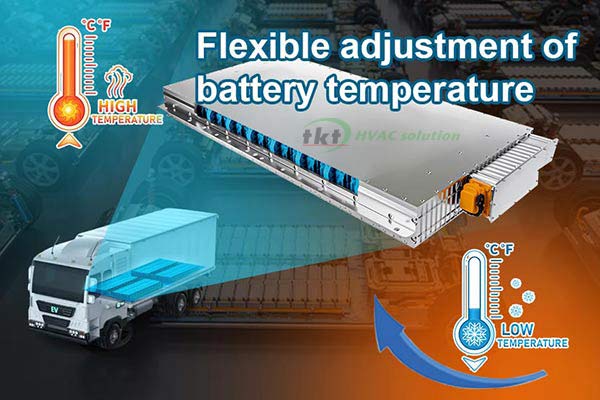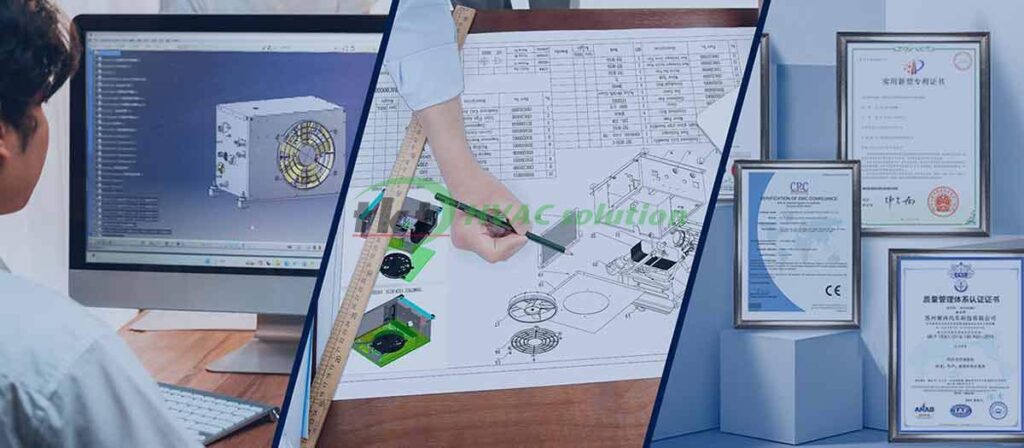Introduction to Battery Thermal Management Systems
Elektrische Fahrzeuge (Elektrofahrzeuge) verlassen sich stark auf die effiziente Leistung ihres Lithium-Ionen-Akkus (Li-Ion) Akkupacks. Diese Akkupacks reagieren besonders empfindlich auf Temperaturschwankungen, which can significantly impact their overall efficiency, including range, voltage performance, and charge times. Effective management of these temperatures is crucial for ensuring the longevity and reliability of EV battery packs.

The Impact of Temperature on Li-Ion Battery Performance
Effects of Low Temperatures
At low temperatures, the performance of Li-Ion batteries can be severely hindered. As temperatures drop, the chemical reactions within the battery cells slow down, leading to an increase in internal resistance. This phenomenon reduces the charge and discharge capacity, as well as the power capabilities of the battery pack.
In extremely cold conditions (below 0°C), the functionality of the battery can be compromised, potentially ceasing altogether. At temperatures below -20°C, there is a risk of irreversible damage to the battery pack, significantly affecting its cycle life and efficiency.
Effects of High Temperatures
Umgekehrt, high temperatures can also degrade battery performance. Elevated temperatures (above 60°C) can cause the battery pack to lose capacity and power. This loss is attributed to the depletion of lithium and the reduction of active materials within the battery cells. An increase in internal resistance further contributes to the decline in power output.
In extreme cases, high temperatures can lead to thermal runaway, where the battery heats uncontrollably, potentially causing self-ignition or explosion. Such scenarios underscore the necessity for a robust Battery Thermal Management System (BTMS) to maintain optimal operating conditions for the battery pack.

Role of the Battery Thermal Management System
A BTMS is engineered to keep the battery pack within its optimal temperature range (typically 20°C to 45°C) irrespective of external ambient conditions. By maintaining this temperature range, the BTMS ensures the battery’s performance, Sicherheit, und Langlebigkeit.
Components and Functionality of BTMS
A comprehensive BTMS includes various components such as heat exchangers, smart electric products, wiring, hoses, and a master controller with tailored firmware. This plug-and-play system is designed for seamless integration into the vehicle’s chassis, simplifying the setup process.
Cooling and Heating Mechanisms
In flüssigkeitsgekühlten Akkupacks, coolant circulates through the Battery Management System (BMS), transferring heat to and from the battery cells either via direct immersion or conduction through a battery plate. The coolant then flows through the BTMS, where it is conditioned to maintain the desired temperature.
- Heating Mode
In heating mode, the BTMS ensures that the battery pack remains within the optimal temperature range during cold conditions, preventing performance degradation due to low temperatures.
- Cooling Mode
In cooling mode, the BTMS prevents overheating, protecting the battery pack from the adverse effects of high temperatures and reducing the risk of thermal runaway.
Intelligent Control and Monitoring
An integrated master controller within the BTMS communicates with the Vehicle Control Unit (VCU) to receive inputs such as the average battery pack temperature and operational mode. In automatic mode, the BTMS controller adjusts its operation to maintain the set-point temperature efficiently.
The system is equipped with multiple pressure and temperature sensors, allowing the master controller to monitor and optimize the BTMS’s performance continuously. Critical data and fault codes are transmitted to the VCU, facilitating vehicle-level monitoring, diagnostics, and troubleshooting.
Abschluss
TKT’s well-designed Battery Thermal Management System (BTMS) is critical for optimal performance, safety and longevity of lithium-ion battery packs in electric vehicles. By effectively regulating the temperature of the battery pack, the BTMS improves the range, efficiency and reliability of the vehicle, ensuring that electric vehicles are able to meet the demanding requirements of modern transportation.



